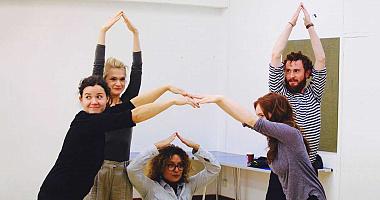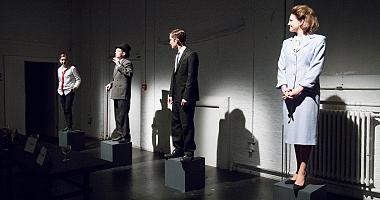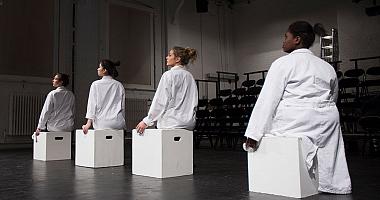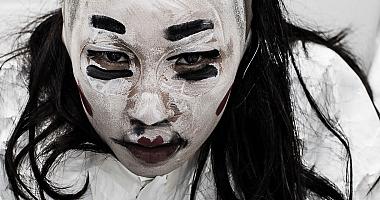MA
Musical Theatre
Content navigation menu
Why study MA Musical Theatre at Goldsmiths
This unique Masters will enhance your critical understanding of musical theatre as a popular entertainment genre.
- This programme will help you to sharpen your practical skills as a creative artist. On a practical level, it will assist you in working as a freelance writer, composer or producer of musical theatre.
- The MA focuses on the dramaturgy of the musical as a key factor in the future development of the genre.
- Expert professionals are regularly employed as visiting tutors, to maintain direct links with the industry.
- You follow one of the two pathways as either:
- Producer
- Writer or composer - You undertake an analytic case study of a musical or production, a placement project and dissertation (producers), and a creative project involving either book and lyrics or music for a short original musical (writers and composers).
Contact the department
If you have specific questions about the degree, contact Robert Gordon.
Length
1 year full-time or 2 years part-time
Entry requirements
You should have (or expect to be awarded) an undergraduate degree of at least 2:1 standard in a relevant subject. You might also be considered if you have relevant experience and can show you have the ability to work at postgraduate level.
Fees
Home - full-time: £10350
Home - part-time: £5175
International - full-time: £22640
Department
What you'll study
On the Producers pathway, you'll study the following compulsory modules:
| Module title | Credits |
|---|---|
| Case study (Producers) | 60 credits |
| Production workshop | 60 credits |
| Genre Study | 30 credits |
You'll also take a 30-credit contextual option module from a list approved annually by the department.
Note about optional modules (if available): The above is indicative of the typical modules offered, but is not intended to be construed or relied on as a definitive list of what might be available in any given year. The module content and availability is subject to change.
Teaching
Lectures by members of the established teaching staff and from specialist visiting tutors with expert knowledge of specific fields and topics alternate with seminars, which develop your ability to analyse and evaluate historical material and interpret video and audio recordings of key performance texts through a combination of tutor-led discussion and student presentations.
A significant amount of learning will be achieved in group practical projects, while activities such as placements are designed to develop your individual communication skills and to model the experience of the workplace environment.
Facilities
As a Goldsmiths drama student you will have access to our fully equipped George Wood Theatre, five studios and our design spaces, which include a sound and media studio and well-equipped workshops for set construction and costume making.
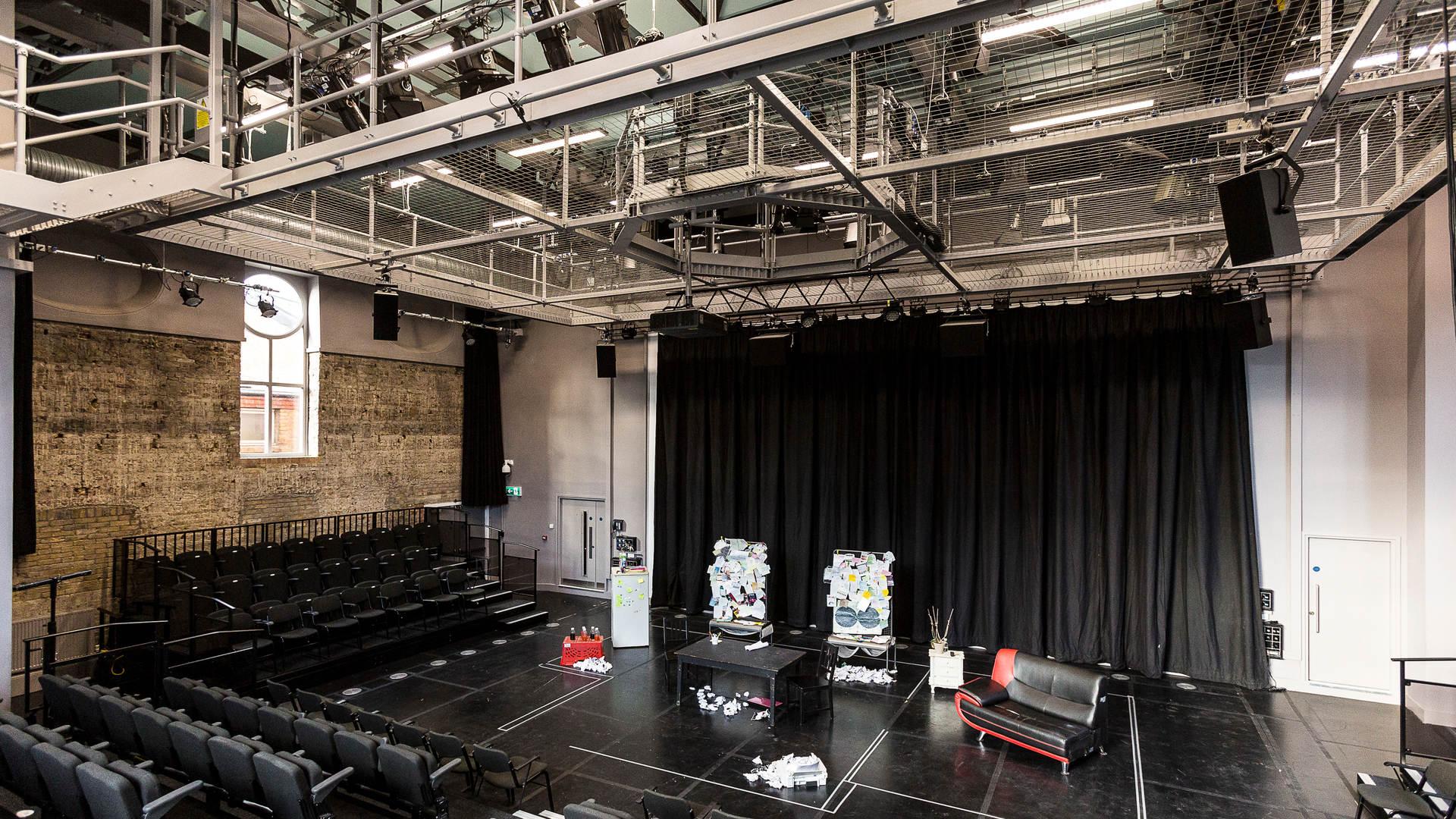
George Wood Theatre
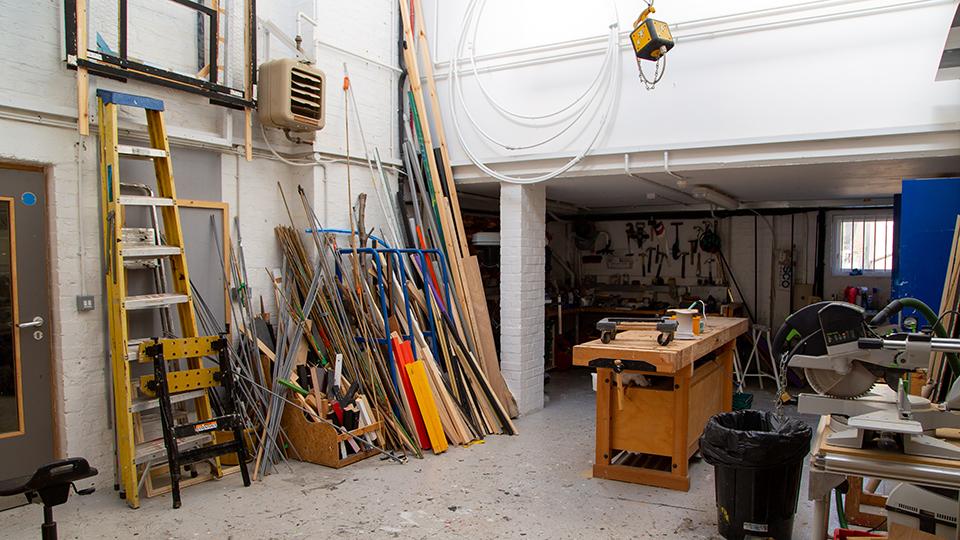
Set and prop workshop
Entry requirements
You should have (or expect to be awarded) an undergraduate degree of at least upper second class (2:1) standard in a relevant/related subject.
You might also be considered for some programmes if you aren’t a graduate or your degree is in an unrelated field, but have relevant experience and can show that you have the ability to work at postgraduate level.
International qualifications
We accept a wide range of international qualifications. Find out more about the qualifications we accept from around the world.
If English isn’t your first language, you will need an IELTS score (or equivalent English language qualification) of 6.5 with a 6.5 in writing and no element lower than 6.0 to study this programme. If you need assistance with your English language, we offer a range of courses that can help prepare you for postgraduate-level study.
How to apply
Apply directly to Goldsmiths using our online application system
You apply directly to Goldsmiths using our online application system.
Before submitting your application you’ll need to have:
- Details of your academic qualifications
- The email address of your referee who we can request a reference from, or alternatively a copy of your academic reference
- Copies of your educational transcripts or certificates
- A personal statement – this can either be uploaded as a Word Document or PDF, or completed online. Please see our guidance on writing a postgraduate statement
You'll be able to save your progress at any point and return to your application by logging in using your username/email and password.
When to apply
We accept applications from 1 October to 30 June for students wanting to start the following September.
Late applications will only be considered if there are spaces available.
If you're applying for funding, you may be subject to an earlier application deadline.
Selection process
Admission to many programmes is by interview, unless you live outside the UK. Occasionally, we'll make candidates an offer of a place on the basis of their application and qualifications alone.
Find out more about applying.
Fees and funding
Annual tuition fees
These are the PG fees for students starting their programme in the 2024/2025 academic year.
- Home - full-time: £10350
- Home - part-time: £5175
- International - full-time: £22640
If your fees are not listed here, please check our postgraduate fees guidance or contact the Fees Office, who can also advise you about how to pay your fees.
It’s not currently possible for international students to study part-time under a student visa. If you think you might be eligible to study part-time while being on another visa type, please contact our Admissions Team for more information.
If you are looking to pay your fees please see our guide to making a payment.
Funding opportunities
Find out more about postgraduate fees and explore funding opportunities. If you're applying for funding, you may be subject to an application deadline.
You may also be eligible to apply for AHRC funding.
Additional costs
In addition to your tuition fees, you'll be responsible for any additional costs associated with your course, such as buying stationery and paying for photocopying. You can find out more about what you need to budget for on our study costs page.
There may also be specific additional costs associated with your programme. This can include things like paying for field trips or specialist materials for your assignments. Please check the programme specification for more information.
Teaser cards linking to other pages
Careers
Skills
You will develop a critical understanding of the collaborative processes involved in the creation of musical theatre in the UK and USA.
Composers and librettists/lyricists will achieve an enhanced ability to engage with the integration of dramaturgical and musical components of musical theatre writing, and a comprehension of the various factors involved in working within the industry.
Producers will acquire an overall perspective on the industrial and organisational factors involved in musical theatre production, including methods of theatre marketing, systems of arts funding and policy, and a working knowledge of the strategies involved in producing a small-scale musical.
Producers will also develop skills of leadership and teamwork and the ability to develop and critique their own approaches to working in musical theatre production.
Where your degree can take you
Typical careers for graduates of this MA include:
- Musical theatre composer
- Librettist
- Lyricist
- Producer
- Marketing manager
- Production assistant
Find out more about employability at Goldsmiths.


